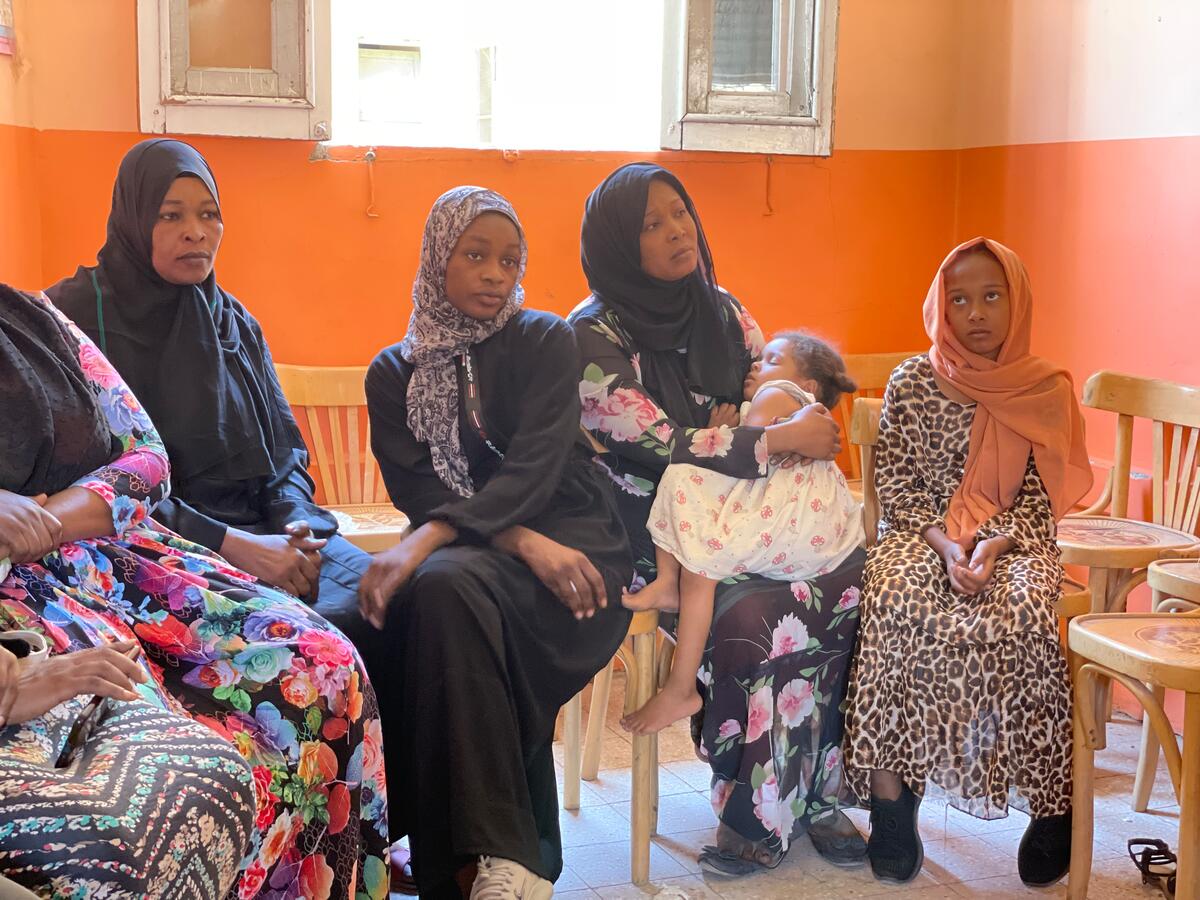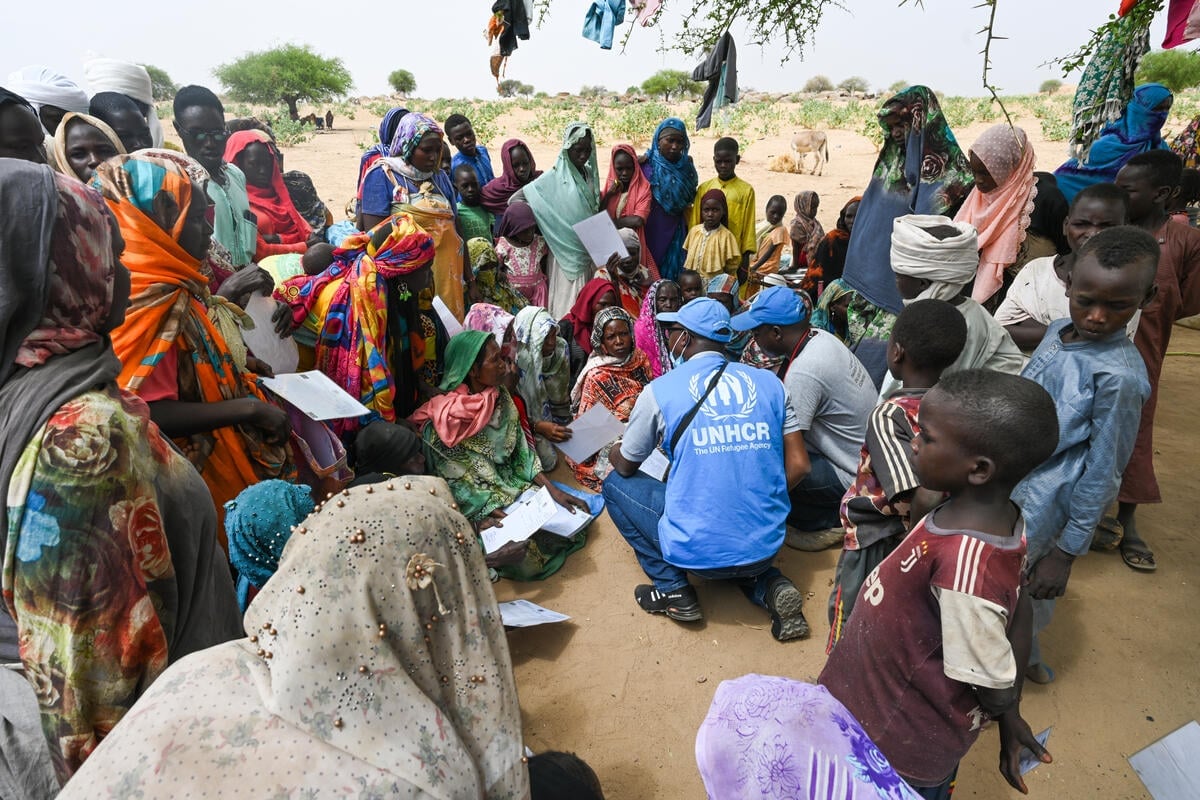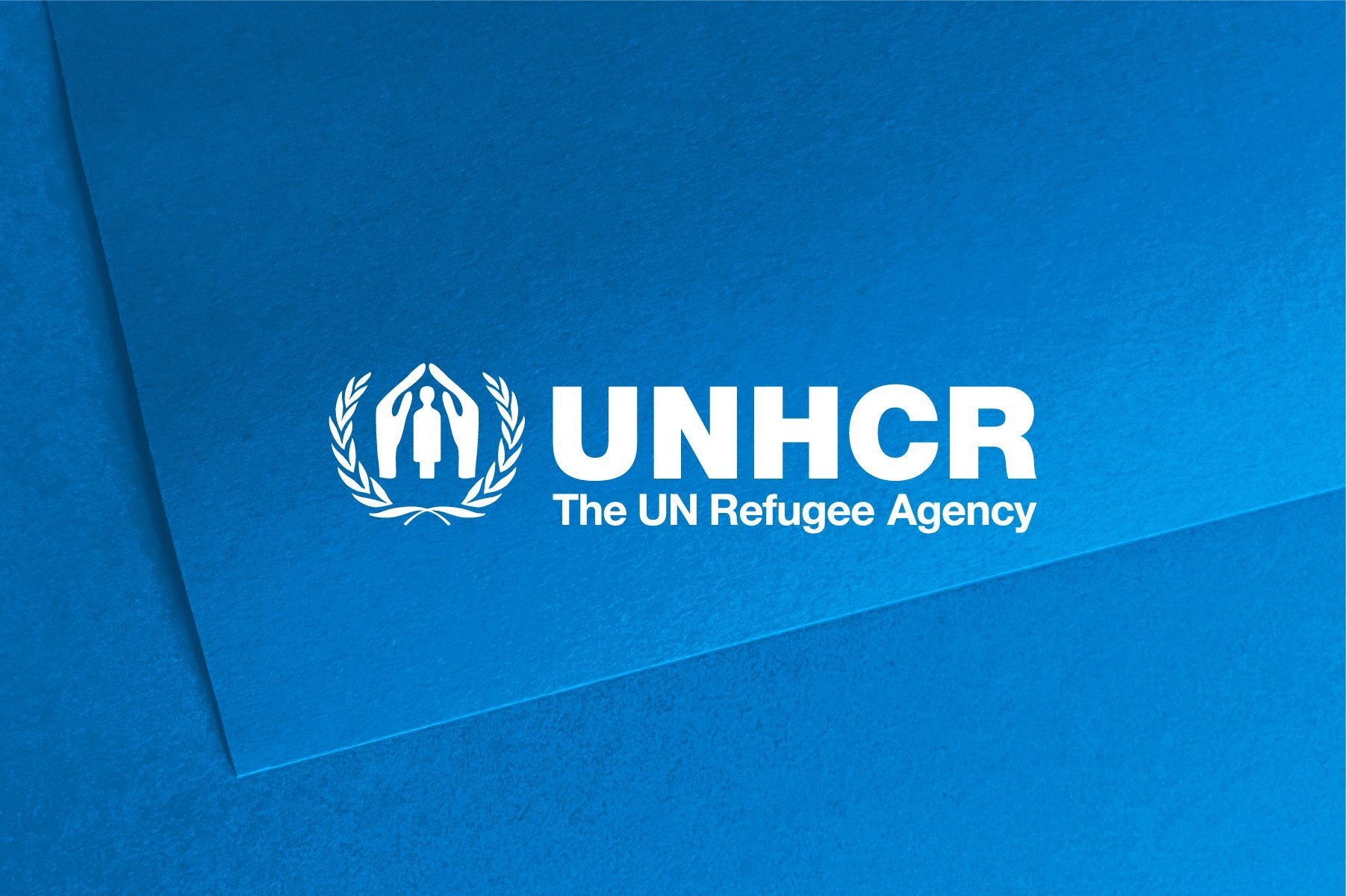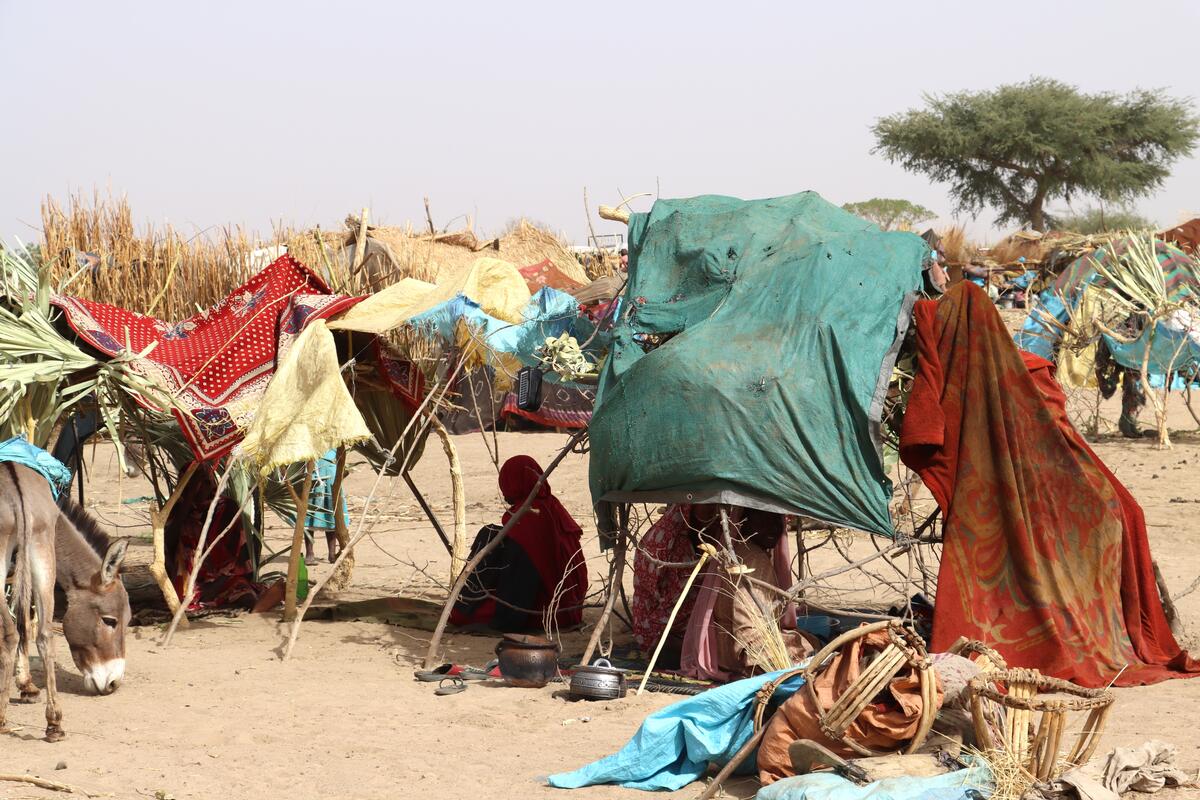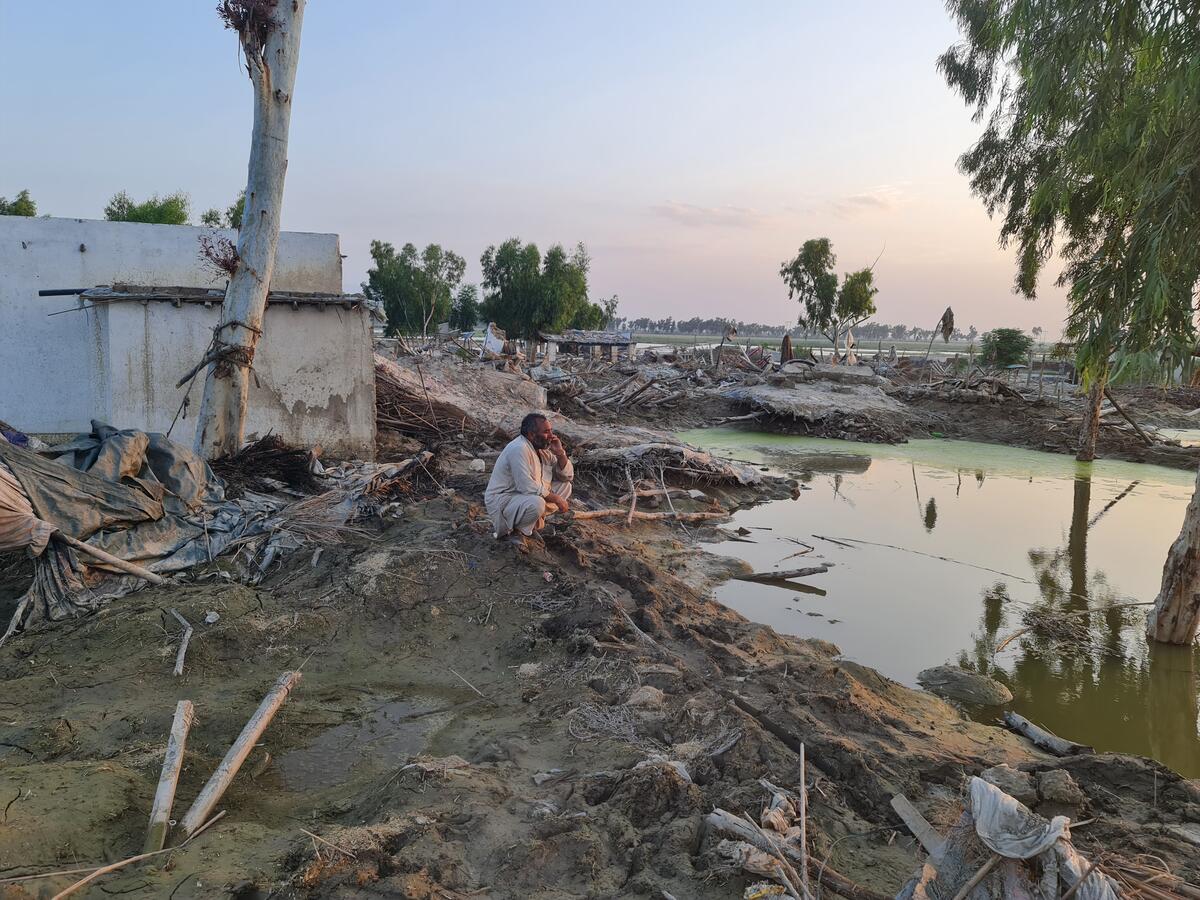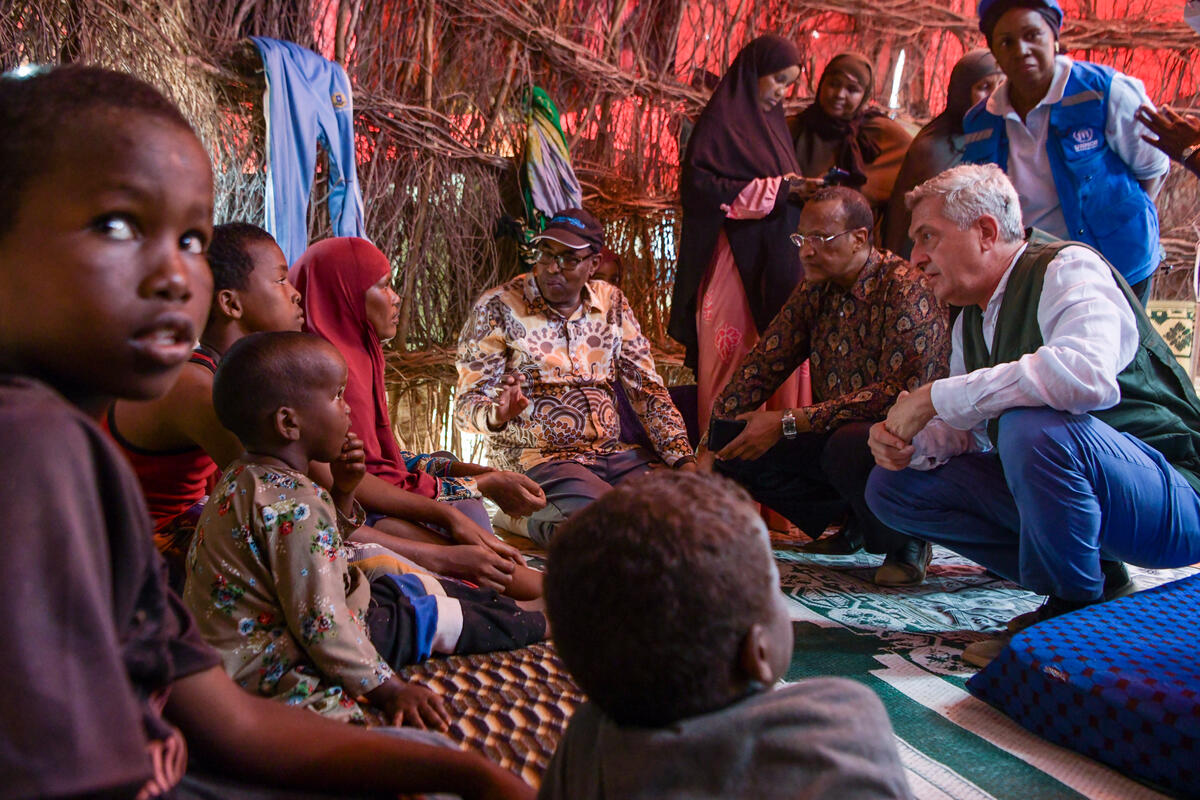Flood damage at Kakuma Camp in Kenya
Flood damage at Kakuma Camp in Kenya
Aid workers at Kakuma camp in north-eastern Kenya are continuing urgent work under overcast skies to provide new shelter for thousands of refugee families left homeless by heavy rains last week. UNHCR staff said this morning that the unprecedented weather that destroyed more than 7,000 family shelters and left two refugees dead has moved out of the area, but that they are racing to re-house refugees as more rain threatens.
Two young Somali boys drowned in the floods that swept through the area last week. They were apparently caught by rising waters as they crossed a riverbed from one part of the camp to another.
Teams of aid workers have been putting up new shelters at a rate of 60 a day in an unaffected portion of the site. Construction is expected to accelerate with the delivery today of more building material. The extension of the camp's clean water system to the new area will be completed today, and eight banks of new latrines have been dug so far to replace facilities that collapsed in the downpour.
As an emergency measure, UNHCR has also distributed two plastic sheets each to over 2,500 families whose roofs collapsed last week, but who can rebuild the existing structures. We are bringing in another 2,000 plastic sheets from our regional stockpile, but will need around 5,000 more for immediate needs and to reconstitute the camp's emergency supply.
Over 100 families are still housed in community centres, while most refugees have been able to move in with neighbours or friends on a temporary basis. UNHCR's priority has been to re-house families headed by women, or who are unable to do construction work themselves. The distribution of food to all affected refugees was completed yesterday (Thursday) and by tomorrow the entire camp population will have received the delayed rations.
A team of NGO and UNHCR health experts has warned that further rains would require a broad immunisation of the camp population of 81,000, mostly Sudanese refugees, as there is a heightened risk now of cholera, respiratory diseases and malaria.


